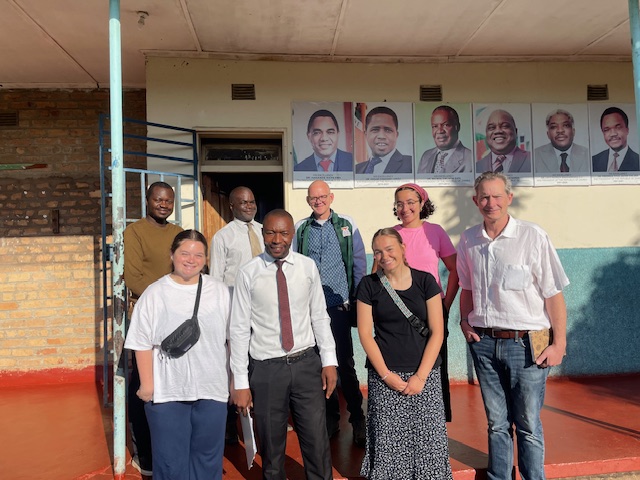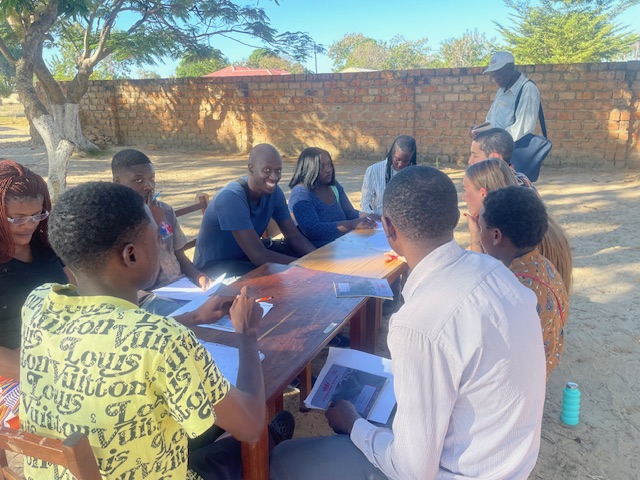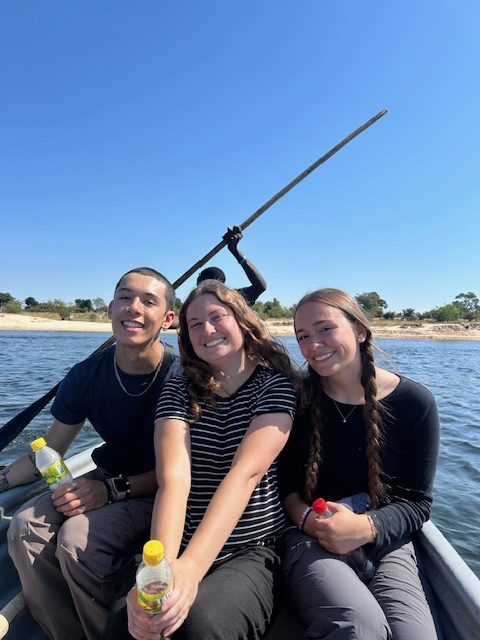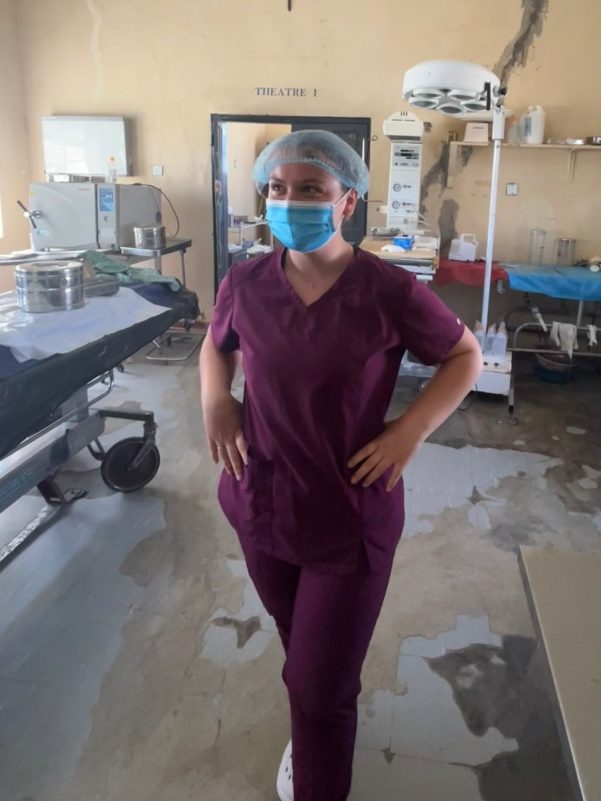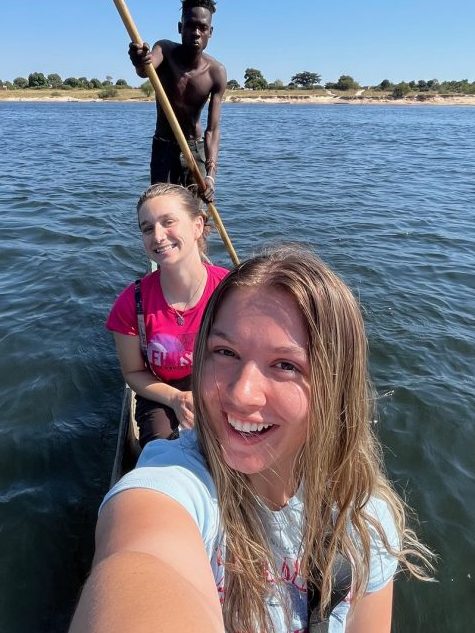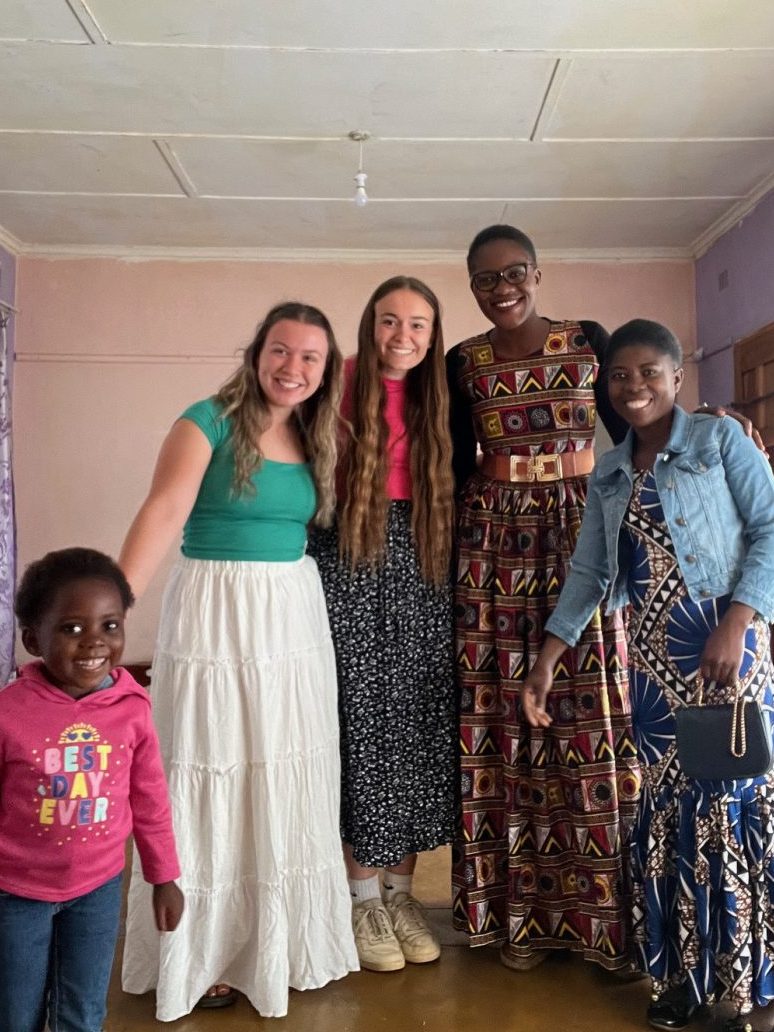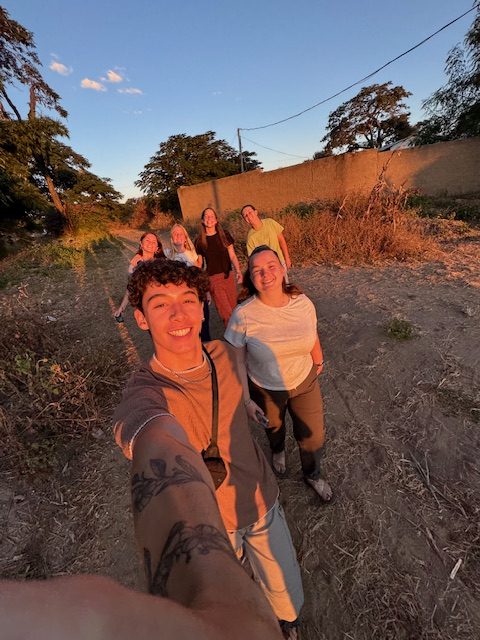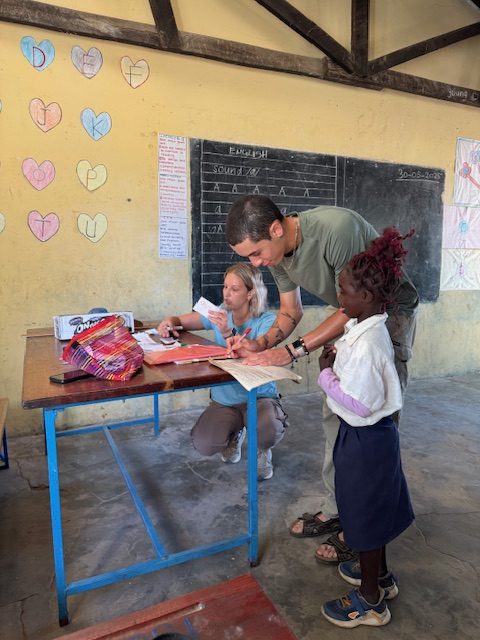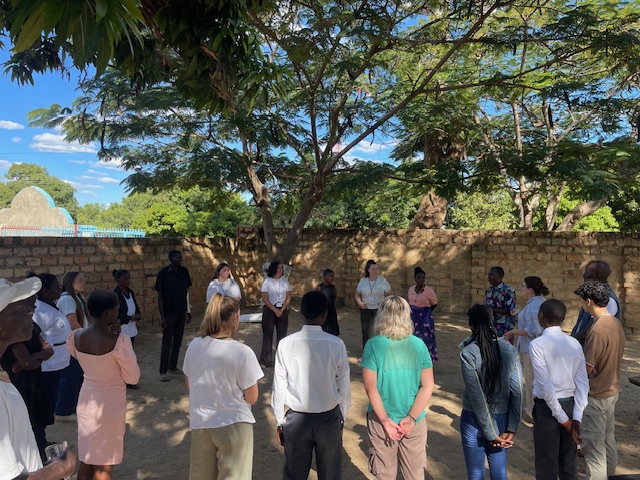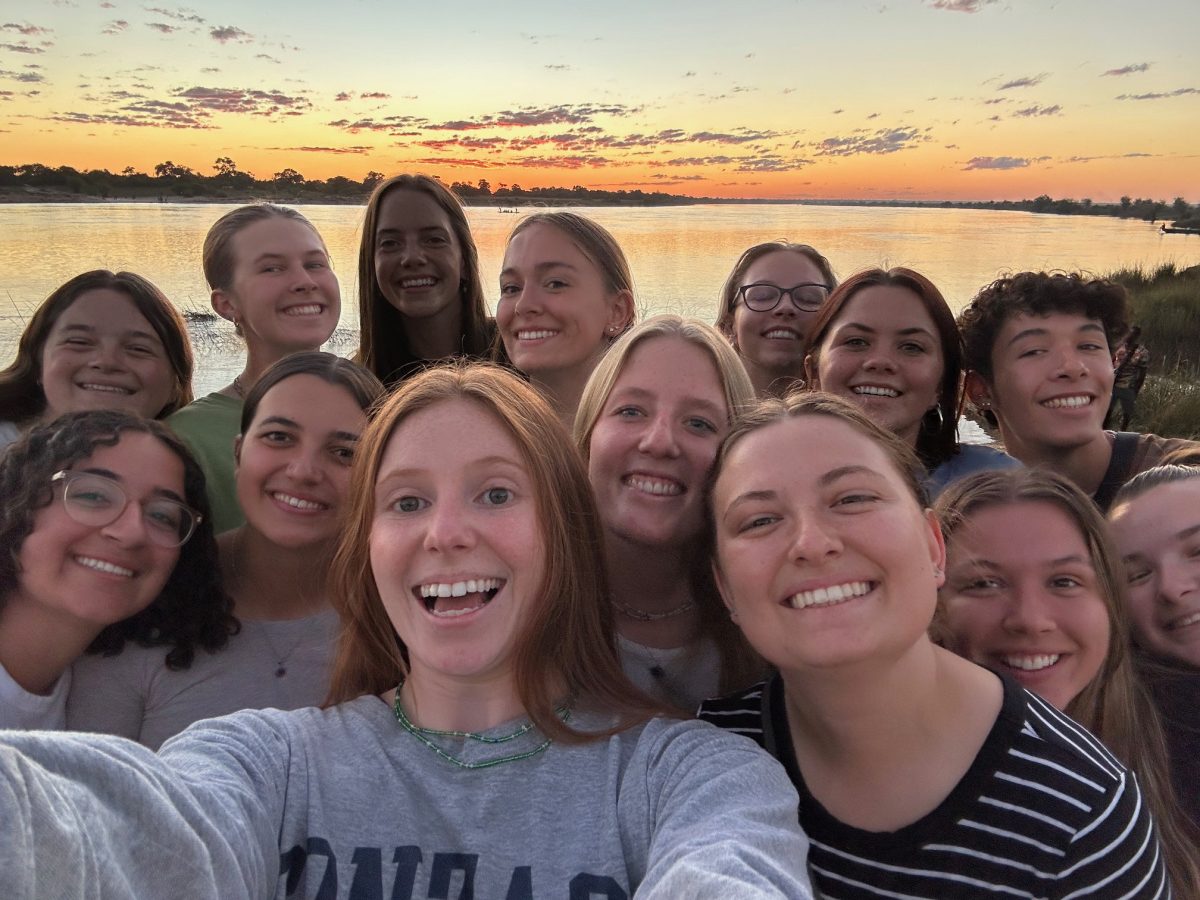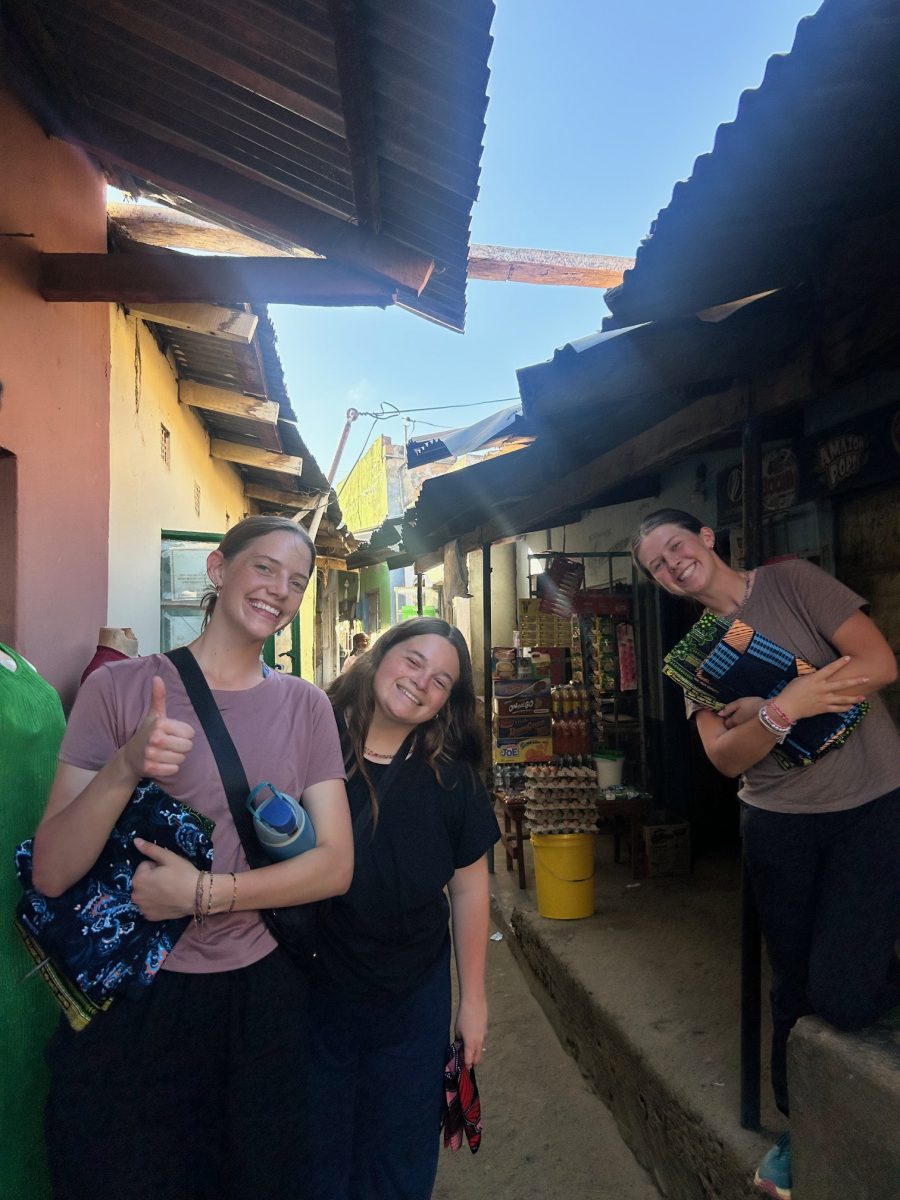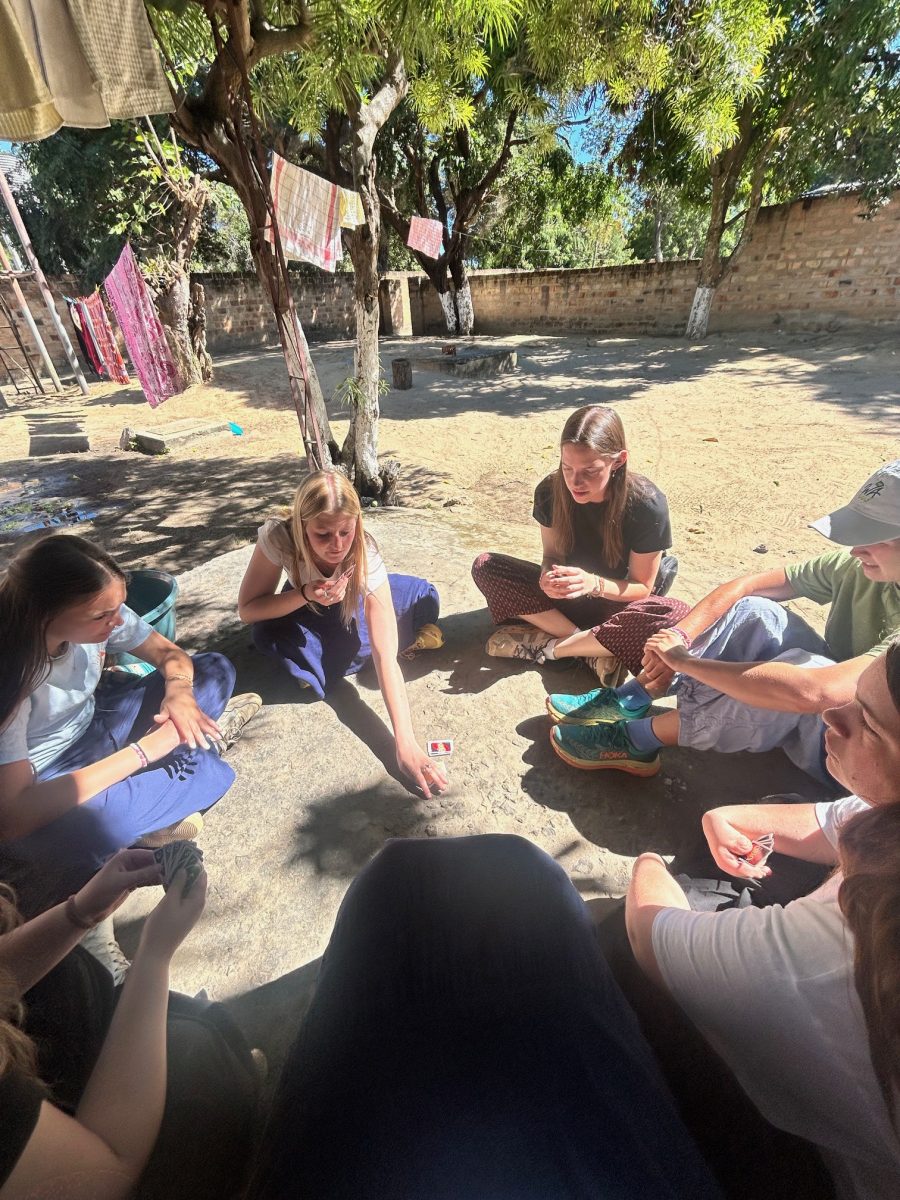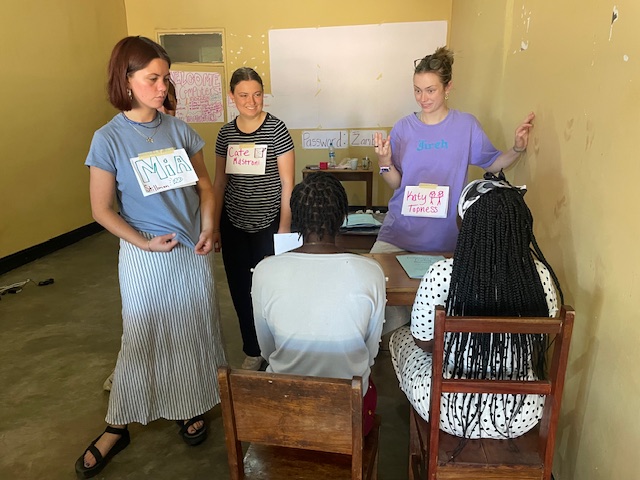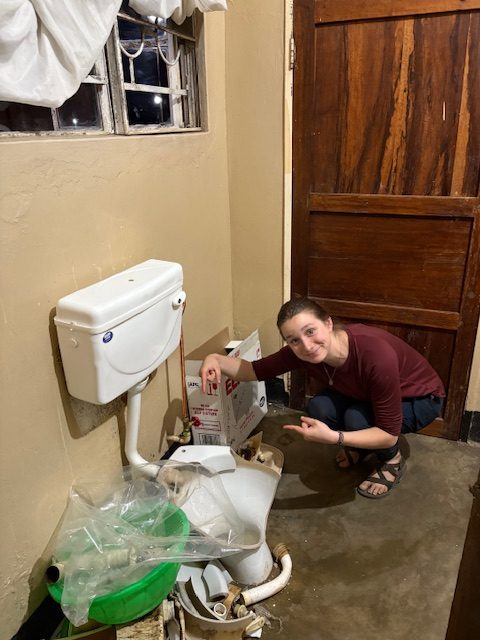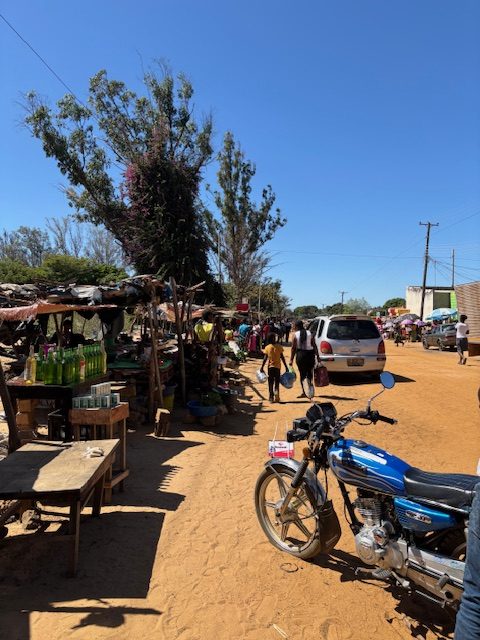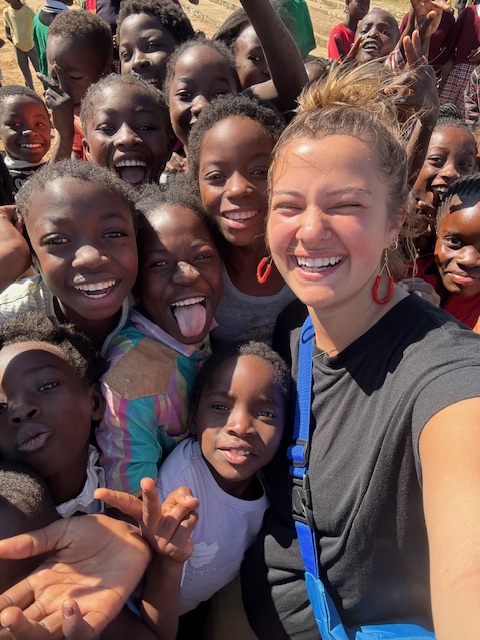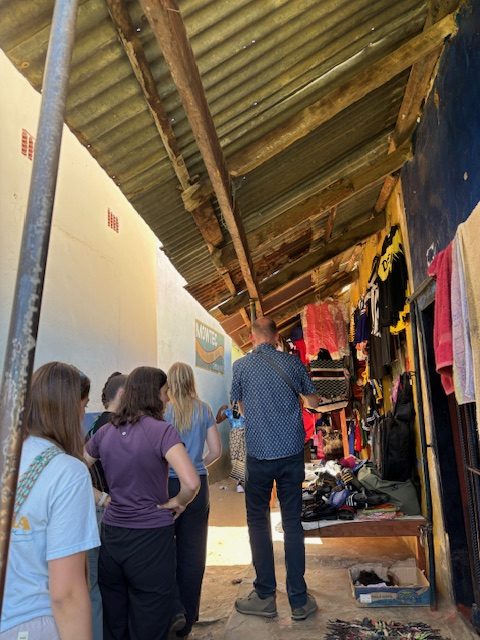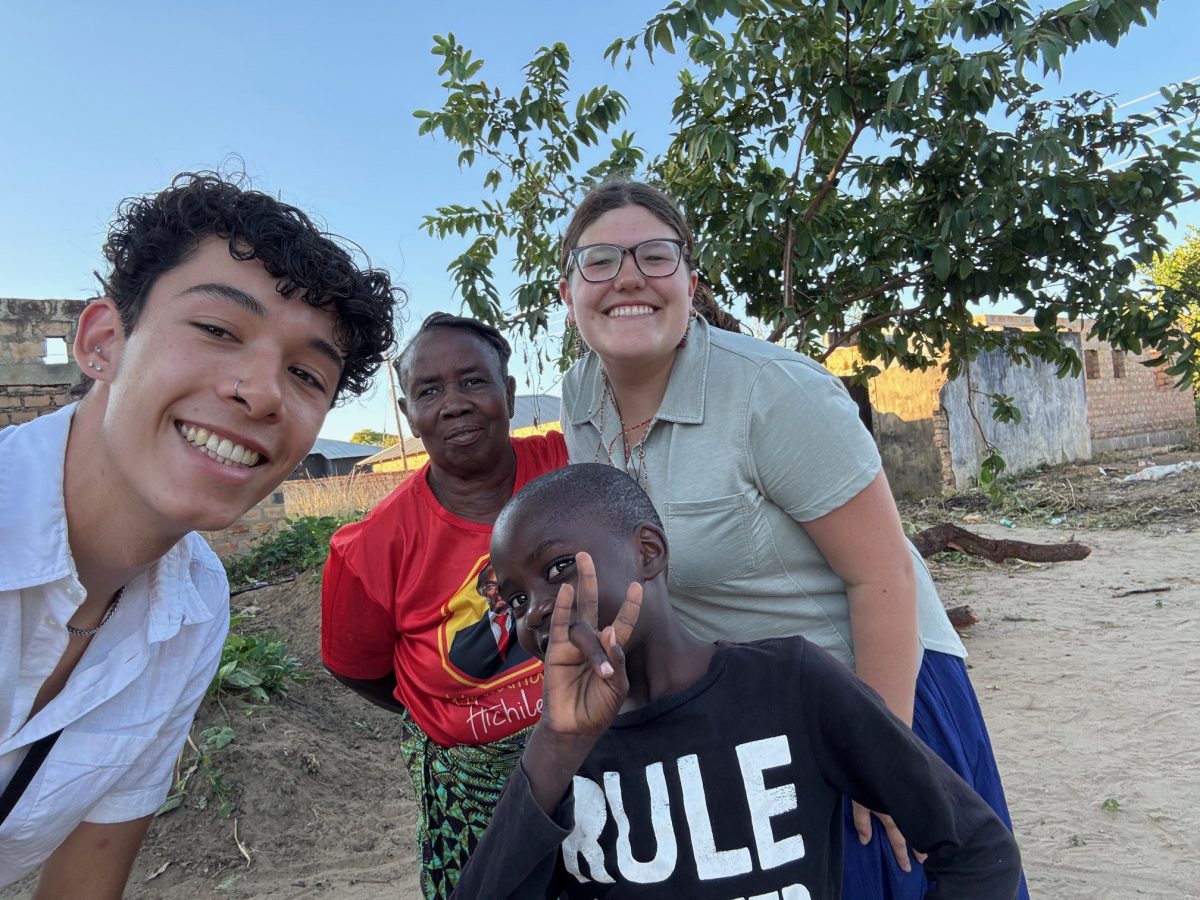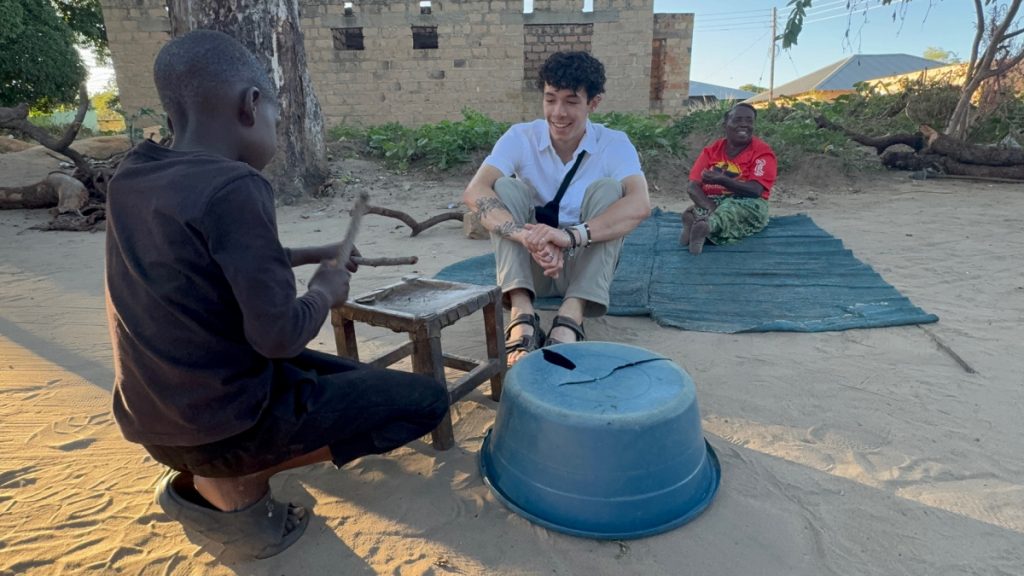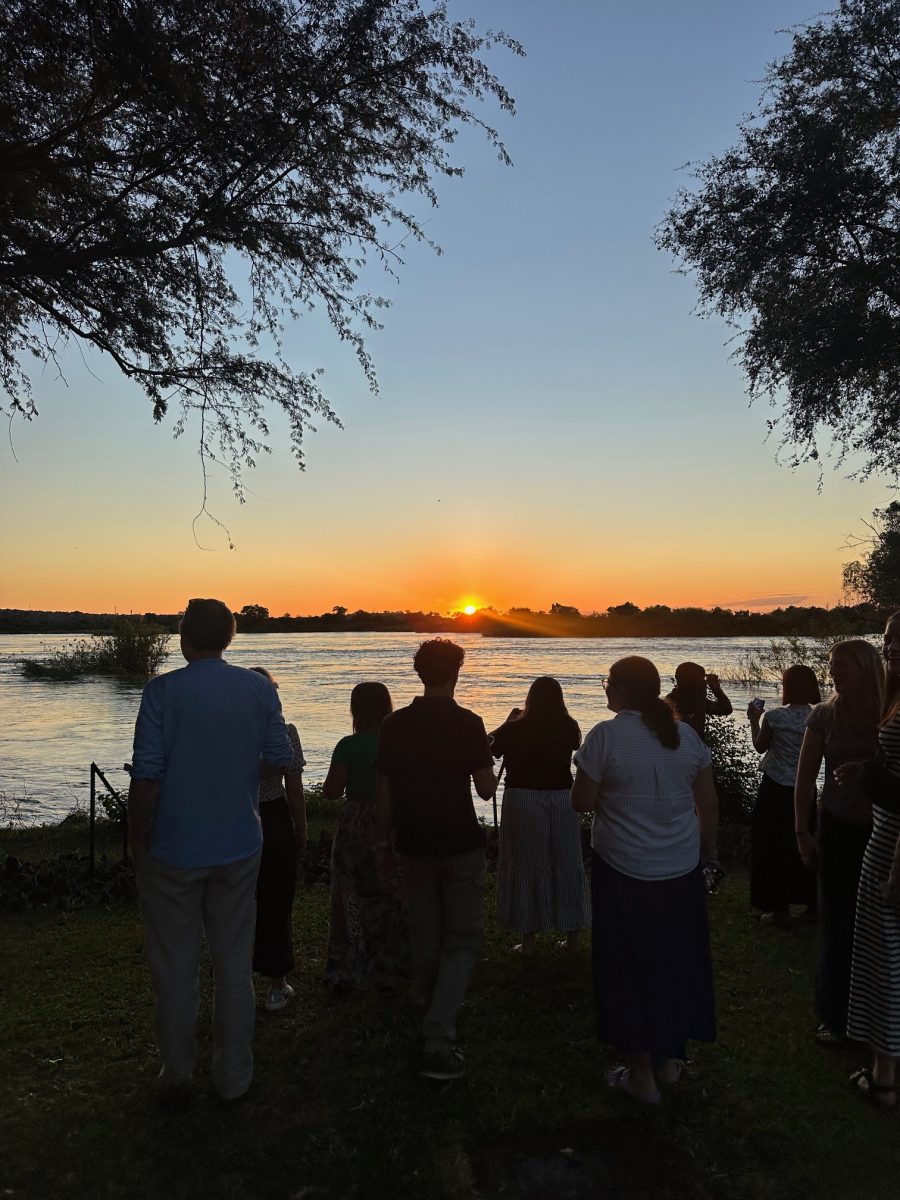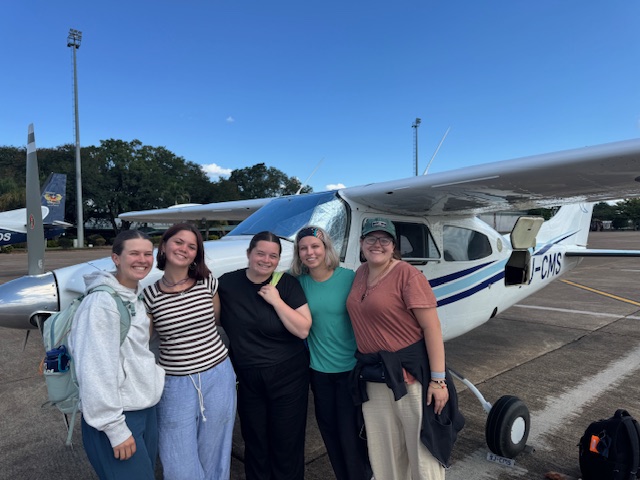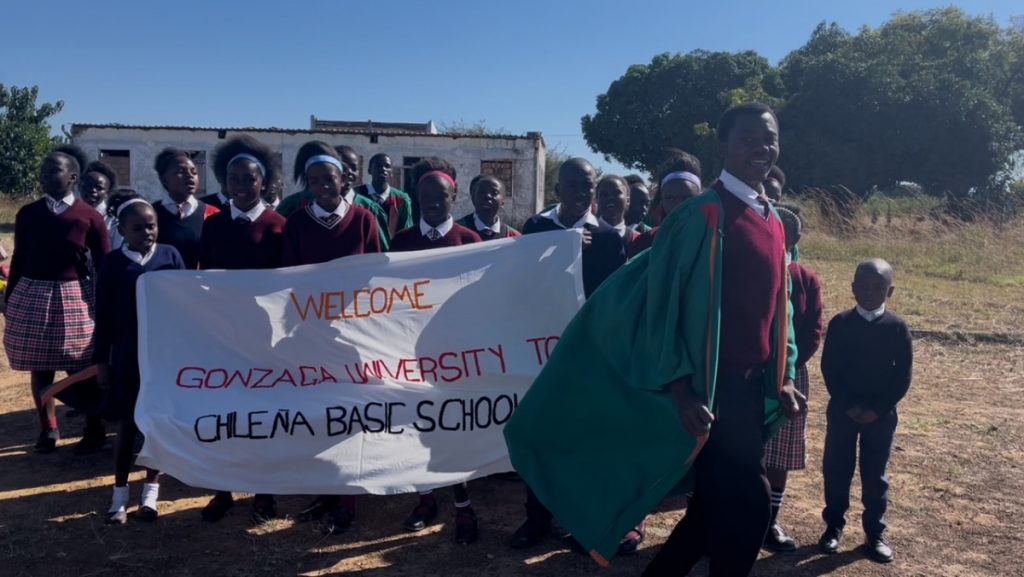Over the past year, I have been grappling with what it means to be human. Often, the difference between my own privilege and the struggles faced by a large portion of the world have fueled confusion and uncertainty about what it means to experience life from a human perspective. In this process, I have started to believe that the way in which I interact with life is not inherently human. I have begun to try and understand that much of the world lives in conditions far different from my own, and my unique experiences reflect a privilege I cannot begin to understand. Due to consistent reflection on this topic, I have begun to pay more attention to the vast inequalities that can be uncovered and exposed anywhere one looks. Many people are consistently silenced, oppressed, displaced—in need of real, present, active change. This concept has been guiding my perspective for what it means to be human.
However, this exploration happened solely in Spokane and in the confines on my own mind. From my bedroom, classrooms, and long processing walks, I tried to understand that much of the world lives in conditions far different from my own.
I lacked experience.
I cannot pinpoint why I decided to come to Zambia. However, I am inclined to believe that I came on this trip to discover a little more what it means to be human, to test if my working hypothesis was correct. Perhaps I was seeking to live in a community that contrasted my own in order to have a wider interpretation of what the reality of the human experience is.
It seems selfish to think that I decided to come for my own experience. After all, what entitles me to think that my own experiences are worth the sacrifice and efforts of individuals in a community I do not even know. I would like to believe that I did not come to help along the lines of saviorism. After all, Zambians do not need my help, and my days are structured far more around learning than anything I can bring. Alas, I settled on trust that I came to accompany. Yet this abstract conclusion still troubled me as to why I would think that Zambians seek my accompaniment, and what does that even mean?
In reality, my motivation for my journey here is still unknown, but I am beginning to construct some possible reasons as to why, in this moment, my being is present.
Upon my arrival to Zambezi, I discovered I did not even know what it meant to accompany somebody. Quickly I discovered that I am here to learn how to accompany, rather than distribute my accompaniment among all the people I meet. During our market scavenger hunt, Wendy taught us accompaniment as she closed her shop to help us look for lemons. I learned accompaniment when Caroline made me stop and take a breath after I face planted on one of our morning runs. Albertina taught me accompaniment as she giggled at my inability to stir the pot of nshima while her neighbors danced in the kitchen. Mabel taught me accompaniment as she gave me feedback on our lesson when walking home from the market. Accompaniment means having your eyes, your soul, your being oriented toward the present, a lesson that radically changes my orientation toward the future.
Accompaniment is not the only expectation I had for this experience. I also anticipated a great deal of difference. My working definition of human experience caused me to anticipate feeling like life in Zambezi would feel like living on another planet, yet my time has felt comfortable. Even more, the first few weeks have felt strikingly human.
Human.
Not the differences in our ability to meet our needs, but the essence of what it means to truly experience life.
At the very beginning of the trip, Jeff told us to remember that Zambians are humans too. This fact seems obvious. How could I be so entitled to look over the humanity of the community I have been welcomed into? Despite the seemingly elementary nature of this statement, its implications have guided me on how to interact with the people I meet. Humanizing on a community level can mean an understanding that there are varying roles, personalities, interactions, and voices present. Just as I interact with my Spokane communities, I see the same variety of individuals in Zambezi. The people are comfortable, familiar, and connected to those in my life who they will never meet. I began to see Zambezi as a place I can be a part of rather than one I simply observe.
On a personal and individual level, once again, both Zambians and zags are humans. In “Come to the Table: Five Values for the Global Citizen,” Aaron Ausland writes,
To sit at the communion able is to realize our share in the human condition. We may
be better positioned to have some of our needs met, but our neediness allots us
equality to those we serve.
Upon reading this, I found these words to be a guide on my journey of discovering what it means to be human. These words offered a new perspective for how humanity can acknowledge difference (in our ability to meet our needs, for example) yet focus on our shared humanity.
Zambians are humans too.
As long as we are united in our humanity, our needs come together to form a dependence on each other that transcends whatever differences we may hold.
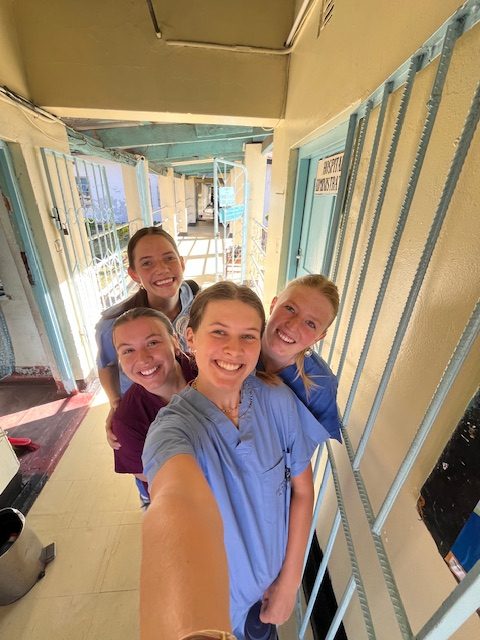
I see profoundly human experiences when I spend the mornings observing in the hospital. The first day I was there, Kamy, Sloane, Ellie, and I were introduced to a patient in the men’s ward. As the doctor told us his list of health conditions, including heart failure, I saw him. On the outside, this man could have been just another individual I could meet in the market. On the inside, his body was working against him, and he shared the same vulnerabilities we all do as embodied beings. The doctor continued to explain that surgical care would require transport to Lusaka which would be a difficult and inaccessible task for this patient. As a result, their care is centered around prolonging the precious life of this man. We were united in our embodied nature, and the vulnerability of the situation. After meeting this patient, I started to see my family and friends in the other patients who I visit. One woman, who I see on a daily basis, comes to mind. When I am guiding her through her shoulder and hip mobility, I see her daughter and her caregivers and how my family could be in the exact same situation. Today, when treating this woman, Brudas, the physical therapist who I shadow at the hospital, told me that today I was the physical therapist and he was the learner. I enclosed my hand around hers and began the exercises. I am not sure what authority allowed me to be in such a vulnerable and delicate position. Perhaps my education, my loaned scrubs, my white skin. Likely a combination of culture or social dynamics I do not understand. Whatever the reason, it is a power I have not earned but a privilege I am grateful for. As I locked eyes with the patient and assisted her stretches, she taught me what it means to be human, what it means to share an experience, what it means to accompany someone. We did not need to speak the same language or share any words. However, I am confident that we had a mutual understanding of reality in that precise moment.
Like my position in the hospital, the lessons on humanity I have learned while being here, have never been earned. Nonetheless, they have been a new privilege I can be grateful for. Profound moments of raw humanity have continued to remind me that an overarching understanding of being human is centered around what we share as we orient ourselves to face the present rather than the future.
Humanity lives in the present moments where we allow our souls to connect.
Like Ausland says, we are united in our neediness, it is a part of being human, or maybe it is what makes us human after all. Maybe that is our experience.
I do not believe that humanity is only found in moments that necessitate complete reliance, but also in moments that are simply, so human. I often think of these moments as elementary behaviors that connect our souls. While I am sure there are cultural differences in provoking these moments, I have found striking similarities during the past few weeks.
Trash talking the Gabis during a semi-impromptu volleyball match felt “so human.”
Having deep conversations of significance while watching the stars feels “so human.” What feels even more human is taking breaks to gasp, point, and cheer when a shooting star crosses the sky.
Having the choir take over our singing performance at our first mass felt “so human.”
Dancing to music in Albertina’s living room felt “so human.” Even more human was that the speaker was massive, and the Bluetooth came from a flip phone.
Pretending to sleep while passing other rigs full of tourists on the safari felt “so human.”
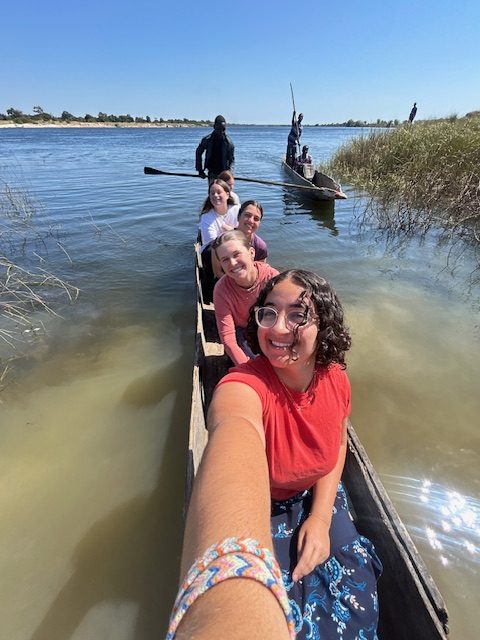
Sometimes being human means joining in on the little moments that do not make a ton of sense. They have no other reason but to remind us of joy and reality that life does not have to be all serious.
These moments are “so human.”
As I continue to have fun human moments, I hope to see the true humanity in the people I am with. Although I have always known there is no simple way to sum up what it means to experience life through a human perspective, I am becoming more convinced that it is not our ability to meet our needs that defines our life, but the ways in which we experience humanity that connects our souls.
I hope to continue to experience humanity from a new perspective. I hope that I am challenged and that my working definition will continue to be complicated. After all, trying to define our whole experience of humanity is very likely in itself, “so human.”
Mom and dad, I miss you. Hearing the comments on the blog makes my day. Don’t worry though, I don’t miss you too much, and surely not any more than normal. Mom, I know you probably cry every time you read the blog, so maybe have somebody read it to you, but maybe not dad because it might be the longest thing he has ever read. Dad, I am sure you have played more rounds since your last comment. Doubling 15 and 16 on an even back is unfortunate considering those really shouldn’t be doubles. Say hi to Steven for me 🙂
To all the grandparents, I hope you figured out how to read the blog, and I am looking forward to some lunch gatherings soon.
Okay, that’s all…
Taylor Mularski
Class of ’26

